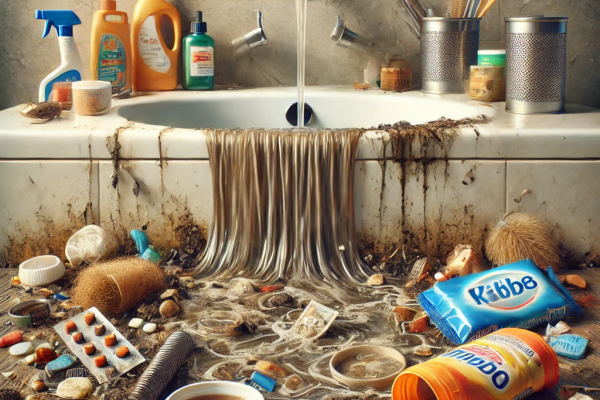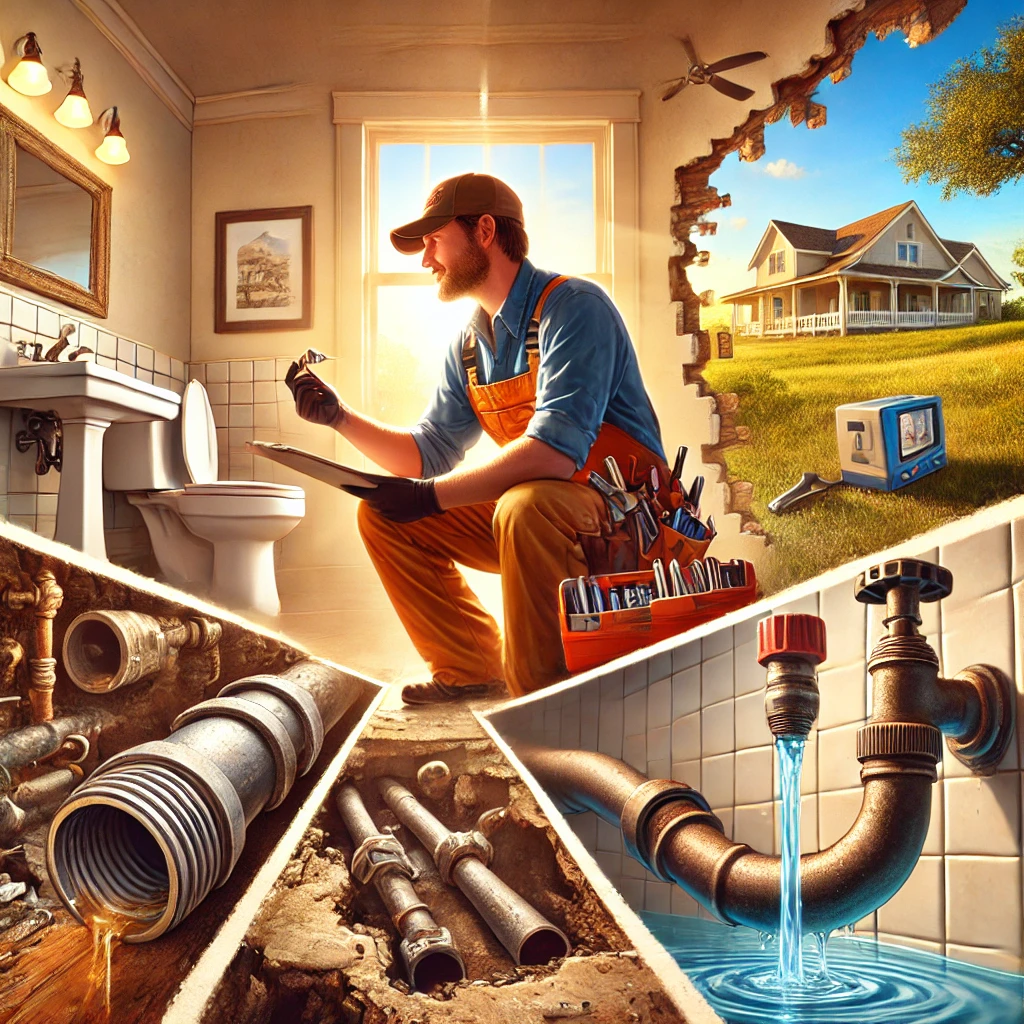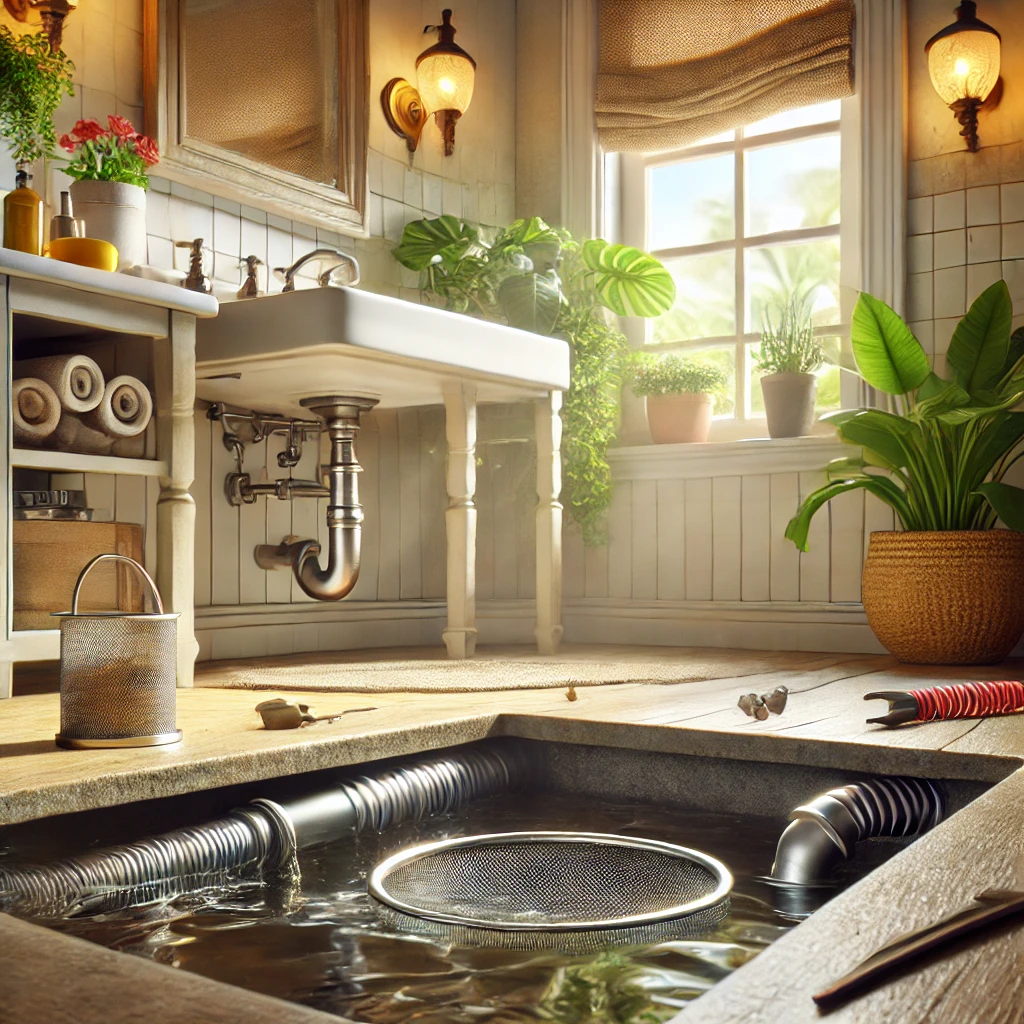
10 Insidious Items That Destroy Your Pipes: Experience from Texas and Beyond
Every homeowner has faced a clogged pipe at least once. If you think that flushing small scraps down the sink or toilet isn’t a big deal, let me assure you: a seemingly innocent habit of sending various household waste “down the drain” can turn into serious problems. My name is Ivan, and I’m a professional plumber with many years of experience, including in the state of Texas. In this article, I’ll tell you about the most common items that should never go into your plumbing and share a few important tips on preventing clogs.
Why This Issue Is Critical
Plumbing malfunctions are not just an inconvenience—they can also be costly. Improper waste disposal can disrupt not only your home’s pipes but also the municipal sewer system. Frequent clogs can lead to unpleasant odors, unsanitary conditions, and environmental damage. Additionally, Texas residents face unique challenges: high temperatures accelerate the breakdown of organic materials, leading to buildup in pipes, while the state’s BBQ culture contributes to grease problems. Let’s take a closer look at the items that can wreak havoc on your plumbing system.
1. Stickers and Labels
Imagine rinsing fruits and vegetables while the stickers stay on. These little labels often loosen under water pressure and make their way down your drain. The issue? Stickers don’t dissolve, and they can cling to the walls of your pipes, creating blockages when combined with grease and other debris.
Tip: Remove stickers before washing produce and dispose of them properly. This small habit can save you significant trouble later.
2. Medications
Flushing expired medications down the toilet may seem harmless, but it can cause serious damage to your plumbing and the environment. Some pharmaceutical chemicals can corrode pipes, while others make their way into the water supply, affecting ecosystems.
Tip: Take expired medications to a pharmacy or a designated disposal site instead of flushing them.
3. Hair
Hair may seem like an innocuous material that should pass through drains easily, but it can quickly become a significant clog. It binds with soap residue and grease, creating dense clusters that block water flow.
Tip: Install mesh strainers in your bathtub and shower drains and clean them regularly. If you notice slow drainage, it’s time to address a growing “hairball” in the pipes.
4. Cotton Swabs, Tampons, and Sanitary Pads
Items made of cotton or other natural fibers—such as cotton swabs, tampons, and sanitary pads—don’t dissolve easily in water. Instead, they expand, potentially blocking water flow completely.
Tip: Never dispose of these items in the toilet. Use a small trash bin in your bathroom to keep your pipes clear and avoid clogs.
5. “Flushable” or “Disposable” Wipes
While many packages claim that wipes are “flushable,” most do not break down quickly enough. These wipes can become stuck on rough parts of the pipes, causing blockages, especially those thick with lotions or solutions.
Tip: Even if the package says they are flushable, discard wipes in the trash to avoid risking a plumbing disaster.
6. Paper Towels and Napkins
Unlike toilet paper, which is designed to dissolve in water, paper towels and napkins have a much denser structure. They can easily create blockages when flushed, leading to plumbing issues.
Tip: Use cloth napkins to reduce waste or throw paper towels directly in the trash to avoid putting strain on your plumbing system.
7. Grease and Cooking Oils
In Texas, where barbecue and fried foods are common, grease and cooking oils pose a particular challenge. Once cooled, grease becomes dense and sticky, attaching to pipe walls and creating blockages over time.
Tip: Always dispose of grease in a separate container and throw it away with regular trash. Never pour hot or warm grease down the sink.
8. Eggshells
Although eggshells seem harmless, they can create serious problems. When mixed with grease or food waste, tiny eggshell fragments bind together and form a solid lump, which can scrape and damage your pipes.
Tip: Dispose of eggshells in the trash or wipe them from pans before rinsing. If you have a garbage disposal, be mindful not to overload it.
9. Coffee Grounds
Coffee grounds do not dissolve in water. Instead, they clump together and form dense deposits inside your pipes. What might start as slow drainage can quickly turn into a full blockage.
Tip: Throw coffee grounds in the trash or add them to your compost pile. They make excellent fertilizer and won’t harm your plumbing.
10. Cat Litter
Some cat litter brands claim to be “biodegradable,” but in plumbing systems, it behaves like cement—swelling up and creating massive clogs. Removing these blockages requires specialized tools and can be costly.
Tip: Never flush cat litter down the toilet. Always dispose of used litter in the trash to avoid plumbing issues.
What to Do if a Clog Has Already Happened?
If you notice slow drainage or strange sounds or smells coming from your pipes, don’t wait to address the issue. In the early stages, you may be able to use a plunger or household drain cleaner. But if the problem persists, or if there’s a foul odor, contact a plumber immediately. In Texas, particularly, the heat can exacerbate plumbing issues, causing blockages to worsen quickly.
Prevention Is Key
Install Mesh Strainers
Mesh strainers are essential for catching hair, food scraps, and other debris before they enter your pipes. Make sure to clean them regularly to prevent clogs.
Routinely Flush Pipes with Hot Water
Running the hottest water possible down the drain once a week helps to break up small grease deposits and prevent buildup.
Use Natural Cleaners
A cup of baking soda followed by a cup of vinegar is a great home remedy to clear minor clogs. After it bubbles, rinse with hot water to keep your pipes clear.
Dispose of Hazardous Liquids Properly
Chemicals, paints, and solvents should always be disposed of at specialized drop-off locations to protect both your plumbing and the environment.
Why Responsible Plumbing Habits Matter to Everyone
We often forget that behind every drain lies a complex system that requires proper care. Clogs are not only inconvenient, but they also have significant environmental impacts. In Texas, where water conservation is becoming increasingly vital due to droughts and climate change, responsible plumbing habits are crucial. Conserving water resources and avoiding unnecessary repairs is an investment in both your home’s future and the environment.
Conclusion
To keep your pipes in top condition, avoid flushing items that can block your drainage system. Even small things, like coffee grounds or fruit stickers, can cause significant problems over time. Texans, in particular, need to be mindful of how the hot climate can amplify the consequences of improper waste disposal. Be proactive and responsible with your plumbing habits, and address issues before they become serious problems.
By doing so, you’ll ensure your home remains a comfortable place, and your plumbing continues to serve you without causing unnecessary headaches. Always remember: prevention is far more cost-effective than repair.






